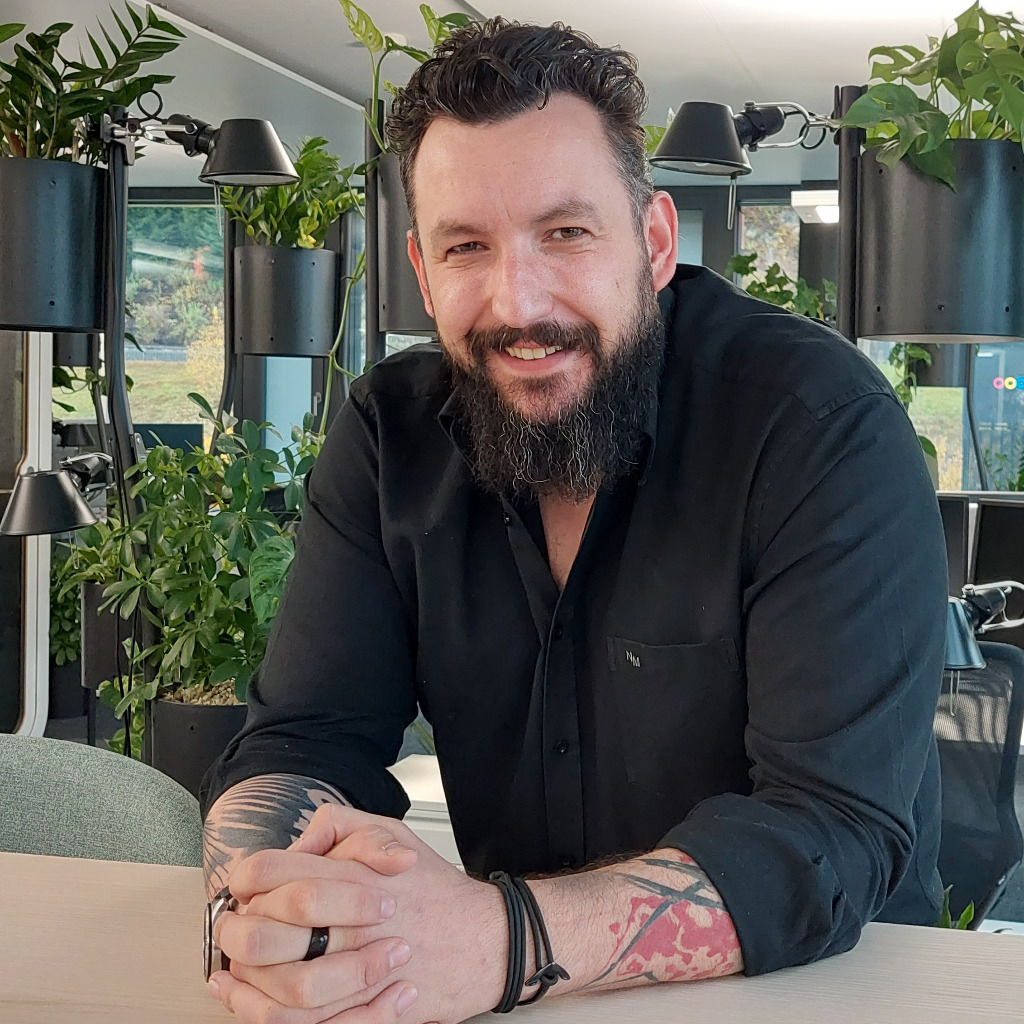
Heute durfte ich mit Nuno Monteiro sprechen. Er ist Vollblutpersonaler schon seit 15 Jahren und durfte schon in einige Firmen in Europa und Asien reinschauen. Aktuell führt er das Personalteam von Mimacom Flowable Group, einem Beratungsunternehmen für Softwarelösungen. Die Frauenquote in seinem Team ist spiegelverkehrt zu dem Rest des Unternehmens und bei ihm ist eigentlich immer jemand schwanger.
 Lieber Nuno, ich kenn dich ja ein bisschen, wir haben vor ungefähr 5 Jahre zusammengearbeitet. Schön, dass du dir heute Zeit für YourHappyBox und das Thema Frauen in der Arbeitswelt nimmst. Erzähl doch kurz ein bisschen von dir, sodass unser Leser sich ein Bild machen kann.
Lieber Nuno, ich kenn dich ja ein bisschen, wir haben vor ungefähr 5 Jahre zusammengearbeitet. Schön, dass du dir heute Zeit für YourHappyBox und das Thema Frauen in der Arbeitswelt nimmst. Erzähl doch kurz ein bisschen von dir, sodass unser Leser sich ein Bild machen kann.
Ja sehr gern sogar. Ich bin schon seit Anfang an mit Herz und Seele Personaler. Die 1. Hälfte meiner bisherigen Karriere habe ich in Asien verbracht und bin nun seit rund 7 Jahren in der Schweiz. In meiner aktuellen Position bei mimacom bin ich ein knappes Jahr und super happy, dass ich mich hier voll entfalten kann. Die Personalentwicklung ist für mich das Spannendste an meinem Job, denn ich bin fest überzeugt, dass nur glückliche Mitarbeiter auch wirklich produktiv sind. Deshalb gibt es in meinem Team eine Chief Happiness Officer, das ist mehr als nur ein fancy Titel, denn für uns als Beratungsunternehmen sind unsere Mitarbeiter unser wichtigstes Gut. Wir sind aktuell in der glücklichen Lage, dass wir viele spannende Aufträge und Kunden haben und jeder zusätzlicher Mitarbeiter*in bedeutet, dass wir mehr Projekte abwickeln können.
Nun besteht dein Team meistens aus Frauen, wie sehr wird dein Alltag durch Schwangerschaft beeinflusst?
Naturgemäss halt oft. Ich arbeite viel mit jungen Menschen zusammen und wie in vielen HR teams sind ein grosser Teil meines Teams Frauen. Gerade dieses Jahr sind zwei meiner Teammitglieder schwanger geworden – und haben vor Kurzem ihre Kinder gesund zur Welt gebracht»
Wie bist du damit umgegangen?
Ach, ich finde da gibt es nur eine Art mit umzugehen. Freude für die Mitarbeiterin. Ist es für mich doof? Ja logisch. Die Mitarbeiterin wurde für eine bestimmte Stelle eingestellt und die Arbeit bleibt ja weiterhin. Aber ich finde du musst dich als Chef immer daran erinnern, dass hinter der Person ein Leben steckt. Für mich war es unglaublich erschreckend zu sehen, wie viel Panik meine Mitarbeiterinnen hatten mir das mitzuteilen. Dabei ist es einfach etwas Natürliches und ehrlich gesagt kann man alles organisieren. In der Schweiz sind die Mütter in der Regel etwas kürzer in Mutterschaft als in Deutschland. Da kann es schon sein, dass man eine Stelle nochmals neu besetzen muss und dann sich neu aufstellt, wenn die Mitarbeiterin beispielsweise nach 2 Jahren wieder zurückkehrt.
Was würdest du Frauen empfehlen für die Kinderplanung und den Umgang mit Familie und Beruf?
Also aus meiner limitierten Sicht, ich bin weder eine Frau noch habe ich Kinder, kann ich nur mitgeben was es mir als Personaler besonders einfach macht. Wenn die Frau für sich entscheidet, was sie gerne möchte und das dann auch transparent kommuniziert. Dann habe ich nämlich einen klaren Standpunkt und kann drum herum planen. Dabei ist es mir egal ob meine Mitarbeiterin 4 Monate oder 3 Jahre in Mutterschaft bleibt. Es gibt meiner Meinung nach kein falsch oder richtig. Frauen und ihre Partner müssen entscheiden, was für sie richtig ist und dann los. Darauf können wir uns dann super einstellen und anpassen.
Was gefällt dir immer besonders gut, wenn du CVs bekommst von Müttern die gerade Auszeit vom Job genommen haben?
Ich finde es generell nicht so relevant, wenn man eine Auszeit für die Kinder genommen hat. Natürlich hängt das ein bisschen von der Dauer ab und was man noch gemacht hat, aber für mich sind die Erfahrungen vor dem Kind/ Kindern relevant. Ich bin immer schwer beeindruckt, wenn jemand präsent ist und sehr klar zu der Auszeit stehen kann. Ich werde ein bisschen nervös, wenn die Antworten ein «wischiwaschi» sind. Wenn ich nicht genau verstehe, ob sie jetzt eigentlich bei den Kindern bleiben wollte oder nicht. Ich bin nicht so Fan davon, wenn man die Zeit im CV als «CEO of family» beschreibt. Das verniedlicht das Ganze meiner Meinung nach zu stark. Aber ich finde in der Zeit macht man sehr viel, was wir sogenannte «transferable skills» nennen und das finde ich immer super, wenn die hervorgehoben werden. Meiner Meinung nach muss niemand sich während der Zeit weiterbilden, sondern kann sich auch ausschliesslich auf die Familie konzentrieren. Falls das aber gewünscht ist, gibt es so viele tolle, kürzere Weiterbildungen die super Sinn machen.
Was sind denn zusammenfassend deine Top-Tipps für werdende Mütter und auch immer mehr Väter im Umgang mit der Karriere und Familie?
- Verkauft euch nicht unter Wert. Gerade nach einer Schwangerschaft/Auszeit. Seid genauso kritisch wie früher auch. Der Job muss passen und du dich darauf freuen
- Involviert die Männerwelt in die Planung und Situation. Break the bias. Ich bin mir bewusst, dass es anstrengend ist, aber oft entstehen Situationen, die nicht schön sind. Das finde ich muss man hervorheben. Dann kann man ganz klar sagen was gerade nicht stimmt und wie es sich für euch anfühlt. Die nächste Person, die nicht in dieser Situation sein muss, wird es euch danken!
- Zusammenhängend mit dem 2. Tipp – Sagt es so laut wie möglich, wenn es Firmen aktiv gut machen. Tauscht euch aus und stellt sicher, dass ihr die Firmen, die sich untragbar verhalten auf die «Black List» kommen.
- Findet euren eigenen Weg und nimmt euch echten Rollmodel. Viel zu viel findet auf Social Media statt und man hat das Gefühl das sind alles Superhumans. Eure Vorbilder müssen zu euch und eurem Lebensplan passen und es viel einfach das gewünschte Leben zu Leben als etwas gestelltem hinterherzueilen.
- Werdet alle Programmiererinnen und kommt zu mimacom 🙂
Weitere spannende Interviews zum Thema Karriere und Kind findet ihr here.








